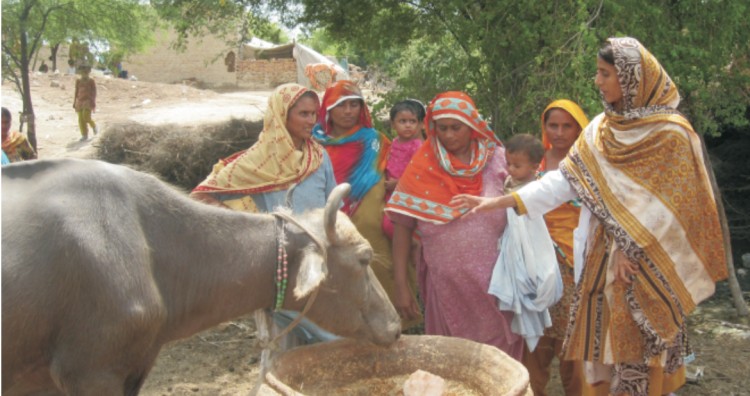Engro Foods is a large agribusiness company in Pakistan and one of the biggest producers of dairy products in the country. To expand its production quickly beyond its own farms, Engro started to procure milk directly from small farms, where most of the cattle mending is traditionally done by women. The company provides training as well as veterinary services and fodder directly to its suppliers, and deducts the cost from the payments for the supplied milk. Especially women benefit from the training and additional income, as it changes the role of their formally unrecognized task of mending cattle to a relevant market activity. Women cite the recognition they receive as empowering.
Seeing the potential of the dairy business for women empowerment, Engro Foods started to work with several foundations to go one step further. Female cattle holders were trained to collect milk from the communities. The project aimed to provide an additional source of income and give women access to a paid job with great relevance in the community. However, this program has proven difficult to sustain. In order to fulfil their duties, women are required to go around communities on a motorbike. This practice, however, is not well seen in Pakistani society, where women are expected to stay at home and not interact with men from other villages, let alone use a motorbike. In addition, when funds from the philanthropic partner dry up, it is difficult for the company to finance the support required to uphold the program.
The example of Engro illustrates two key insights from our current research on the link between inclusive business and women empowerment on behalf of the Asian Development Bank:
(1) Low-income women in developing countries represent a significant hidden market.
(2) Companies need to find smart solutions to empower women while recognizing the multiple constraints they face as a result of deeply rooted norms and roles.
The hidden market
Women’s economic activities are often neither recognized nor paid for. Even if they are, they take place in unregulated spaces and under poor conditions. Women take care of children, the elderly and the sick, mend the house, farm the field, feed the livestock and fetch water and firewood, mostly without pay. Engro tapped into the hidden market of subsistence cattle farmers, thus expanding its supplier base while putting a monetary value to this traditional task of women. Women as consumers can often not articulate their demand for goods and services effectively, for example because they do not control financial resources, or do not have legal rights to sign contracts, or do not have the decision making power in the family. In many places, their needs are systematically assessed as less important than those of other household members, e.g. when it comes to health care and education. . In farming, for example, evidence indicates that if women had the same level of access to resources and inputs than men, they could increase yields on their farms by 20 to 30 percent.
Smart Solutions
In order to tap these hidden markets, companies need smart solutions that recognize the multiple constraints women face in their society. Women usually have multiple commitments at home and at work, roles and activities can be narrowly assigned based on social acceptance and self-perception, legal rights as well as their voice in the family and in the community are unequal to men’s in many places, and they frequently lack the skills and education needed to effectively participate in value chains. By asking women to become milk collectors, Engro may have overstrained the capacity of women to withstand expectations. By contrast, giving them the tools to become better cattle famers empowers them and gives them access to resources and capacities within the boundaries of social order. To ensure women gain control over financial resources, Engro pays women directly at the point of sales. This practice resulted in better nutrition and children attending better schools. The art in women-empowering inclusive business is to create spaces for women to grow without bringing their families and communities up against them. Companies that manage this balance could grow their business with women quickly, realizing returns and empowering women at the same time.
On behalf of the ADB, Endeva is developing a study on how inclusive business can empower women. Endeva reviewed 13 company examples in depth, one of which was Engro Foods. This blog post was authored by Christina Tewes-Gradl and Isabel von Blomberg.


